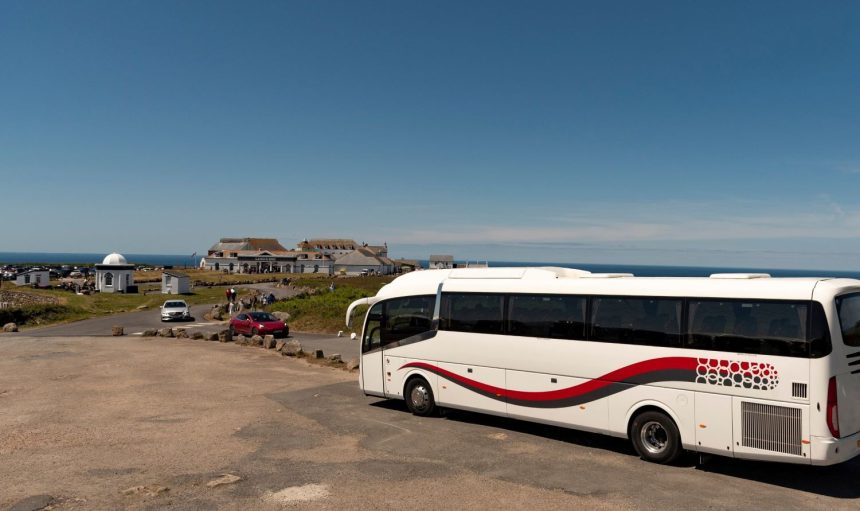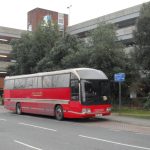Raising the profile of a “forgotten mode” is one of the principal aims of the recently published coach action plan from sub-national transport body (STB) Peninsula Transport.
The body committed to defining and delivering the strategic transport priorities of the area covering Cornwall, Devon and Somerset sees coach as an important cog in the public transport machine.
As one of seven STBs, it works with local authorities and other key stakeholders and provides a voice to the Department for Transport (DfT). The body itself defines its role as a researcher, influencer, and facilitator.
Up to now, coach has generally not featured prominently in the policies of the STBs. Western Gateway — the one roughly covering the West Country — was pioneering in this respect when it produced a strategy document specific to coach early last year.
It was noted at the time that there was barely a mention for the travel mode in any strategy documents produced by the STBs England’s Economic Heartland, Midlands Connect, Transport East, Transport for the North and Transport for the South East.
Peninsula Transport, which works closely with neighbouring Western Gateway, has followed suit with its 43-page coach action plan produced by WSP and published earlier this year.
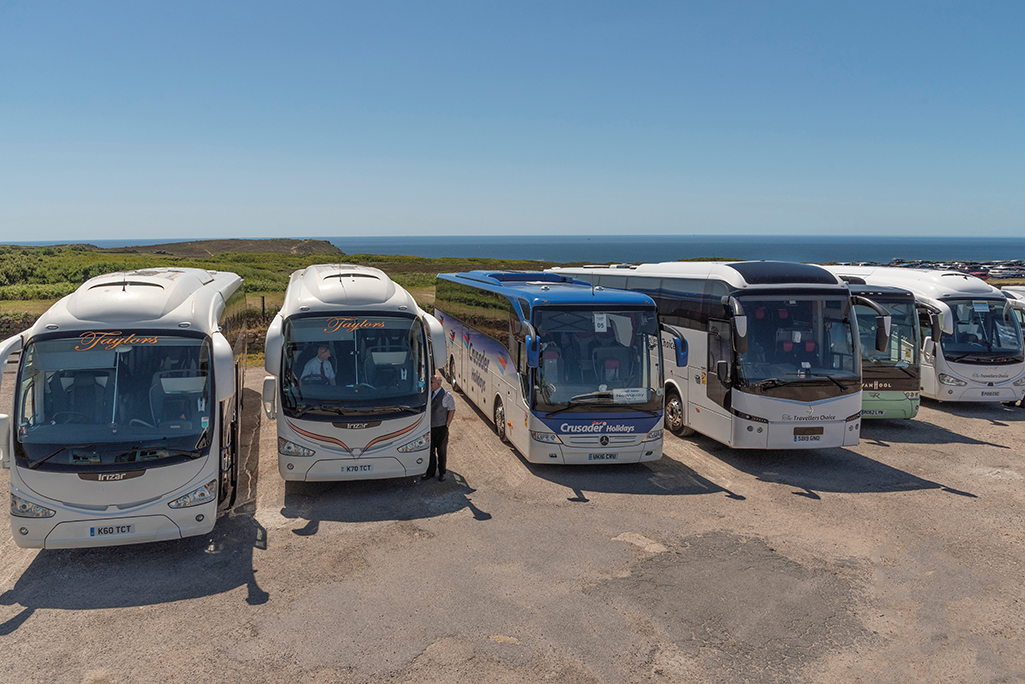
Mirroring the body’s overall transport strategy, it works along four main themes: a connected peninsula, completing the transport network, easier journeys, and going electric.
Composed of representation from the area’s five local authorities of Cornwall Council, Devon County Council, Somerset Council, Plymouth City Council and Torbay Council, Peninsula Transport places among its first aims that of seeking and realising “quick wins” with regards to coach.
These include establishing a coach information portal containing details on parking, stops and facilities for the region; the setting up of a virtual coach forum; and identifying three places that can gain Confederation of Passenger Transport (CPT) Coach Friendly status by this summer.
Putting coach on the map
Tim Reynolds, an Associate at WSP who worked on the plan, is a former regional Planning Manager at National Express. He says: “Coach does tend to be the forgotten mode, struggling to be recognised when decisions are made around parking, road network layouts, developments and town planning.”
That was echoed by Kim Hawes, Peninsula Transport Project Manager, who has worked at local authority level and is aware of the lack of recognition for coach. “I think, because it’s a commercial operation, the message sometimes gets lost in terms of the opportunities for public and private to work together,” she says.
According to Peninsula Transport, the aim of the plan is to “support change and speak on behalf of the region so that, together with our partners, we drive investment in coaches, and more widely public transport, and provide a better integrated transport offer for everyone who lives, works and visits the region.”
Challenges in the Peninsula
Coach already plays a significant role in the Peninsula region, according to the body. It estimates, based on CPT’s figures from 2024, that coach brings into the area 4.9 million tourists annually and that this is worth £250 million to the local economy.
However, it notes that the sector has struggled in the area due to issues such as the pandemic, rising costs of operation, a declining labour market, an ageing operator base, and a lack of infrastructure.
When it comes to the challenges associated particularly with the region, Kim notes it is predominantly rural.
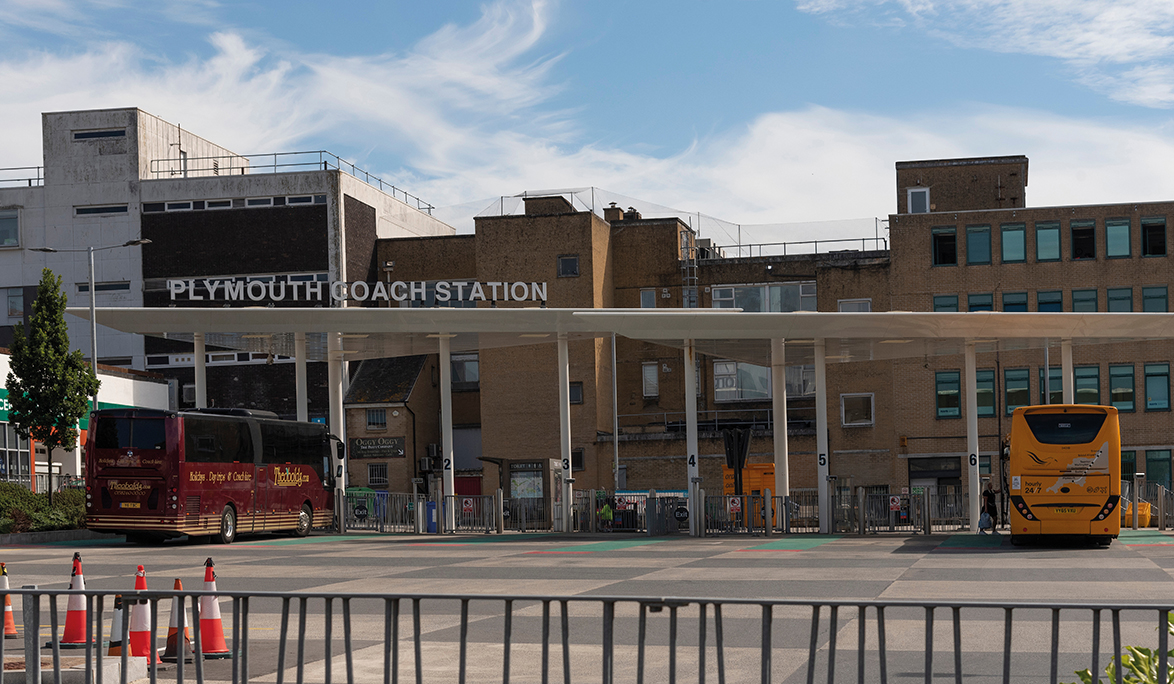
Tim adds: “From a scheduled coaches point of view, the challenge is the road network and accessing the Peninsula, with the motorway stopping at Exeter and the M5, particularly at peak times, getting very congested.”
The last remaining Megabus service wholly in England runs between Bristol and Plymouth, the Falcon service being described as being “vital”. Meanwhile, Berry’s Coaches in Taunton also provides scheduled services.
Seeking operator input
One of the first concrete steps that Peninsula Transport will take is the setting up on a virtual forum to hear what the industry needs.
Tim says: “We want an interactive forum where people can chip in with ideas, answers, and problems — big or small — and we’ll go and try and find solutions.
“If the M5 is a problem, tell us about it. We might not be able to solve the M5, but we can certainly talk to the people who can influence that in the longer term.
“Or, if there’s a very localised problem, we can equally go and bring the right people together at district and town council levels to solve it. It’s the little things sometimes that make all the big things work.”
Creating a coach portal
Another of the “quick wins” on which the STB will focus is setting up a portal so coach operators can see all they need regarding facilities such as parking for the whole region on a “one-stop shop” website.
Tim says: “What we found is there’s a very scattered and diverse range of information available provided on a multiple number of platforms from local authorities, town councils, and district councils. In their own rights, all are doing their best to provide the information as best as they can, but it’s not very navigable for the coach industry.”
Coach operators … target tours where they have the easiest access for coaches and can get the best information for their drivers and their passengers
Highlighting why that is a problem, especially given a high number of operators coming from further afield for tourism purposes, he says: “We’ve spoken to those coach operators and found they target tours where they have the easiest access for coaches and can get the best information for their drivers and their passengers.”
Peninsula Transport: becoming ‘coach friendly’
The lack of any locations in Cornwall, Devon and Somerset that have the CPT Coach Friendly accreditation is something that the regional body is keen to address, both by putting some on the map this year and by adding more over time.
Even aside from achieving that status, making the area generally more attractive to operators is a goal.
Tim explains: “We spoke to a number of local authorities about existing facilities and found that a lot of the coach parks are maybe for other uses, and they keep getting moved around.”
Making the region more amenable to coach, he believes, includes “guaranteeing a level of protection of facilities, guaranteeing that coach parking prices are low, working with hotels around parking and working with railway stations to make sure that forecourts are available for rail replacement services.”
Integrating coach – a key aim for Peninsula Transport
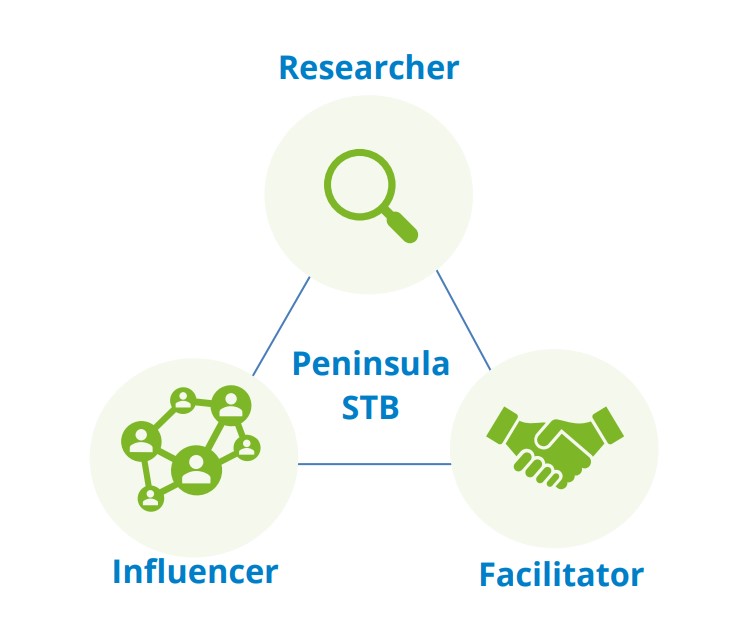
Integration is a buzzword in the industry at the moment, due to the government’s plan to publish an Integrated National Transport Strategy for England. Peninsula Transport is keen to build on that opportunity.
That goes further than integrating timetables, information, and ticketing, according to Kim, who points out the STB’s need to help authorities see how to better integrate coach, bus and rail and understand where the region’s key sites are.
“It’s about thinking about all the modes together,” she says. “Historically, we think in silos, so we’ve got rail, we’ve got bus, we’ve got coach…
“And, when they think about mobility hubs, often coach, coach turning circles and that technical stuff isn’t thought about up front.”
Achieving results on a small budget
Peninsula Transport receives funding from DfT and receives contributions from the five local authorities but recognises that its budget is too small to throw directly into large projects that transform coach’s fortunes in the area.
However, it stresses that its means of effecting change include that of linking up the likes of private industry, coach operators, local authorities, and Bus Service Improvement Plans.
Kim says: “It could be about bringing people together and starting a conversation early enough, which influences the design of a mobility hub.
“That doesn’t need a massive chunk of capital funding or revenue for ongoing services.”
What would be really great would be if we can keep the momentum going and every STB generates a coach action plan
On a national scale, Kim highlights that feeding back to DfT what it hears from operators could indirectly get the government thinking about the prospect of public funding for coach which bus already enjoys.
“There is a role for STBs to elevate that conversation and to communicate the issues and opportunities to government so that they also think about coach in that package of transport and that it isn’t just local bus services,” she says. “At the moment, coach is sitting outside that wider conversation.”
For Tim, the funding issue is about being “creative”. He elaborates that it could mean “things like integrated ticketing systems that make the modes work better together, feeder services that are targeted to feed the coach network as well as the rail network and making it possible for coaches to access town centres and city centres easily through priority measures”.
Leading the way
Peninsula Transport hopes its coach action plan can inspire other STBs to similarly try to elevate coach.
“We’re now probably only the second STB with a dedicated coach action plan,” says Tim.
“What would be really great would be if we can keep the momentum going and every STB generates a coach action plan and then the STBs together could work with government to create a national coach plan.”





















